One of the biggest challenges of owning an electric vehicle is home EV charger installation. Unless you are a knowledgeable electrician or skilful DIY technician, the idea of installing an electric vehicle charger by yourself can be daunting.
Where do you place the Chargepoint inside your home? Can you install it on your own? How much will it cost you? How do you charge electric cars at home? These are just some of the questions you need to answer before you can install a home EV charger.
In this article, we will answer those questions by discussing 5 home EV charging installation tips to help you make the most out of your electric vehicle.
Let’s get started.
- Which Type of Charging Station Do You Need?
The majority of EV owners charge their cars at home and are provided with a Level 1 charger upon purchase of their EV, but you have options on the type of charger you can use – like a Level 2 charger, based on your needs.
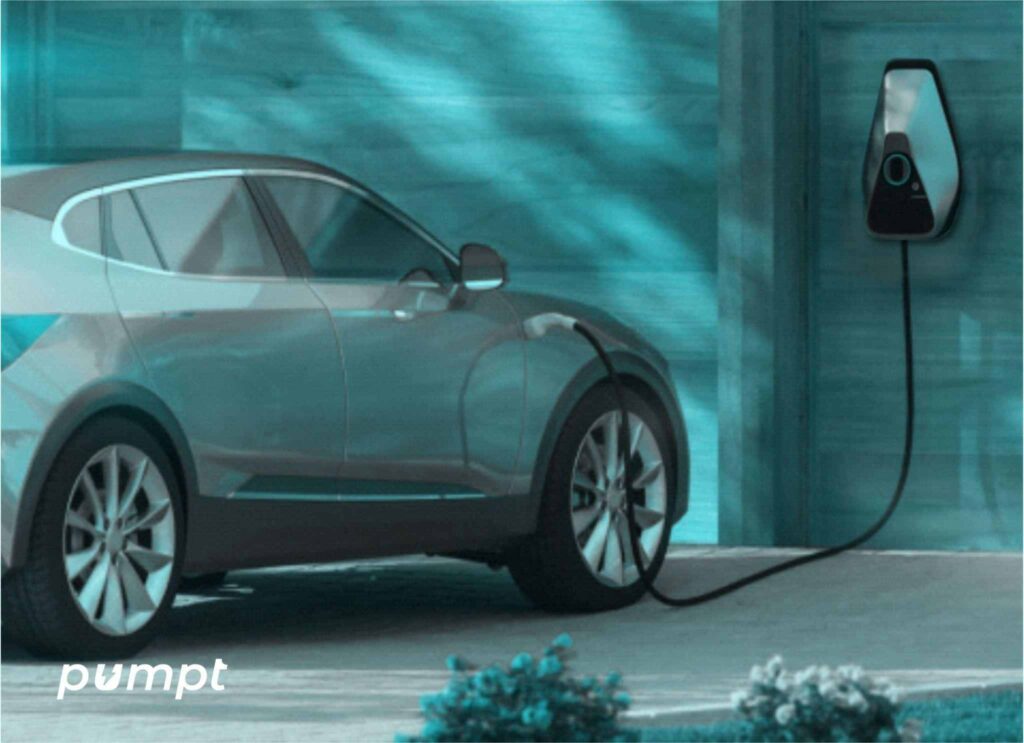
Difference Between a Level 1 and Level 2 Charging Station
Level 1 Charging Station
A Level 1 charger plugs into a standard 110-volt grounded wall outlet and delivers about 5 miles per hour of charge. It might be the right choice if you have a short commute, a plug-in hybrid, access to workplace charging, or the ability to charge for 8 hours or more.
If these criteria do not apply to you, a level 2 charging station may be the right choice for you.
Level 2 Charging Station
Level 2 charging stations are four times faster than Level 1 charging stations and deliver 25 miles per charging hour. This is the best choice for cars with large batteries requiring longer charging sessions and those who want to fully charge their electric vehicle fast.
For a Level 1 charging station, you can simply plug the charger into a wall outlet, but a Level 2 charging station requires EV home charger installation from an electrician.
- How Much Does it Cost to Install a Home Charging Station?
According to the RAC, the EV charger installation requirements cost for a home charge point is around £800. This estimate includes the cost of the charging station.
This may seem much, but the government has been providing a grant that can cover up to 75% of the charge point’s cost, the maximum contribution being £350.
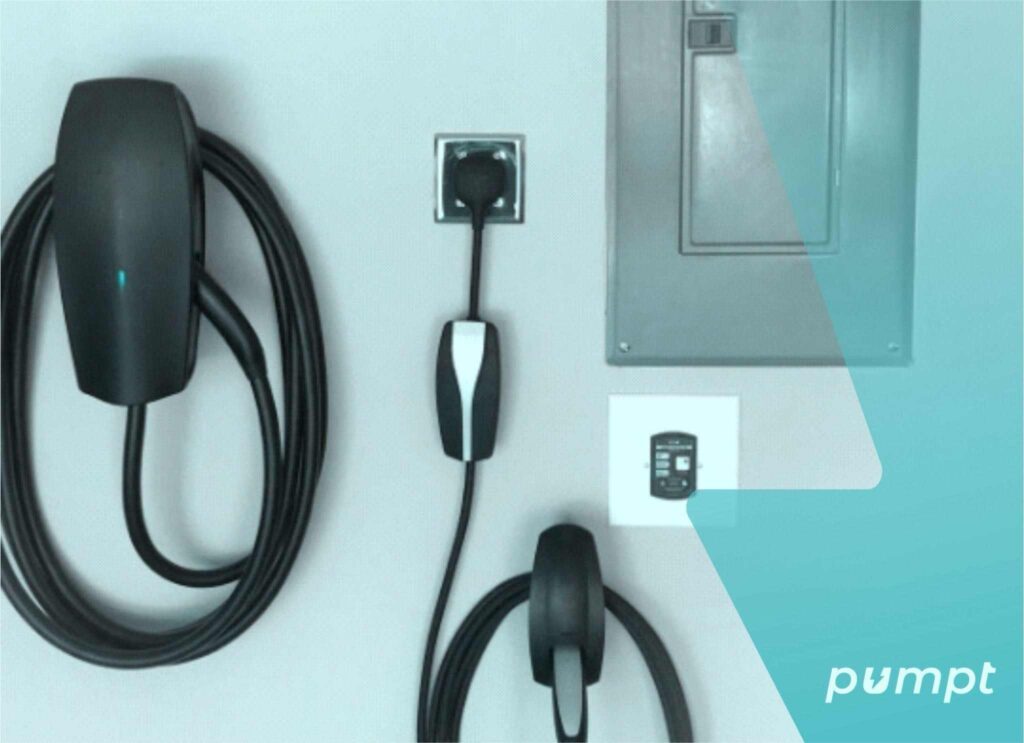
Thus, for EV charger installation at a home charging station, you can now pay less than £100, with an average of around £450.
If you consider how you can save £1,400 per year on fuel with this switch, given that you travel 10,000 miles annually, you can cover the costs of the new charger in a few months.
- How to Install EV Charger UK at Home – Level 2 Charging Station
Step 1: Consult a certified electrician to conduct an electrical assessment inside your home, and ascertain if your electrical panel can work with a Level 2 charging station, which requires a 240-volt outlet just like an electric dryer.
We want to put your safety first, so we highly recommend that you hire an electrician to conduct an electrical assessment before installing a charging station.
If an electrician determines your panel doesn’t have the capacity for a Level 2 charging station, and you’re not able to upgrade your panel at the time, you can be required to install a 110-volt ground outlet at an accessible location for Level 1 charging.
Step 2: You must call an EV charging installer in your area. Find a qualified electrician who will perform the task at a reasonable price.
This is also the perfect time to figure out the electric rate that meets your charging needs. Along with the general residential rates, you can also establish your EV rates.
Compare the general residential rates and correlate them to your driving habits and home energy utility with the EV savings calculator.
Step 3: Once you’ve determined which charging station and EV charger installation rate is right for you, call your local installer. Should your Level 2 charging station installation require a panel upgrade, you will need the services of a technician to turn the power off so the electrician can safely do the upgrade of electrical equipment.
Once you’ve done these steps, and your electrician has completed installing ev charger for your Level 2 charging station, you’ll be ready to charge up. Explore additional resources and expand your knowledge. Click here to learn more: What is a Type 2 Charger?
- How Do Charging Stations Get Power
A charging station is rated in terms of kilowatts, amps, and volts. A good analogy for how EV charging works is the plumbing system. The electricity that flows into your car, measured in Voltage (V), is like the pressure that pushes the water through the pipes. The electric current that flows through the charging station works in the same manner.
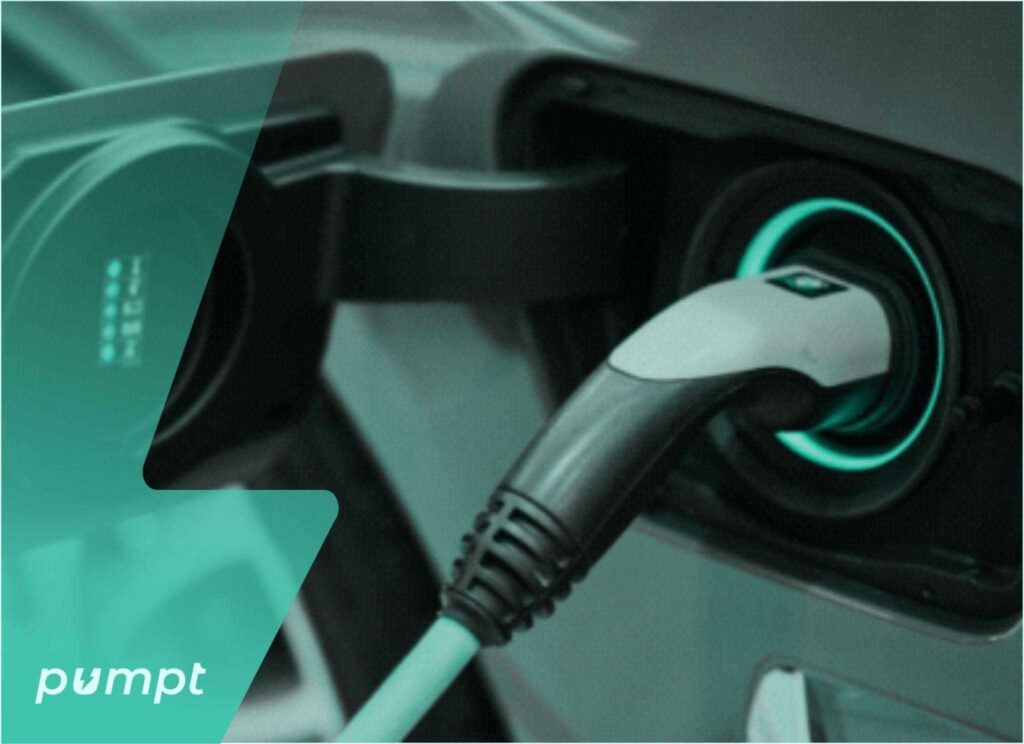
The flow of electrical current, measured by Amps, is just like the water volume. The amp rating is the amount of electrical current supplied to your vehicle’s battery.
Amps and Volts produce Kilowatts (KW) of power into your electric car’s battery, which entails that the Kilowatt values specified in the charging stations are the rate at which the electric car will charge.
How Much Power Will Flow in Your Car’s Battery?
To determine how much power will flow in your car’s battery, multiply the volts by the amps and divide by 1000. For example, a 200-volt Level 2 charging station with a 30 amp rating will supply 7.2 kilowatts per hour. After 1 hour of charging, your EV will have added 7.2 kilowatt-hours of energy to your vehicle.
To calculate how long it will take to charge your entire battery, based on your EV charging station, take the vehicle’s battery capacity, found in the owner’s manual, which is in kilowatt-hours, and divide that by the charging station’s kilowatt output.
For instance, an electric fully EV model has a 42 EV battery capacity (kWh), and the EV charging output is 7.2 kilowatts, which means it will take approximately six hours for a full charge.
- How Much Power is Needed to Charge Your EV
Each EV has a charging rate, which indicates the amount of power the battery can safely accept, regardless of the amount of power being delivered by the EV charging station.
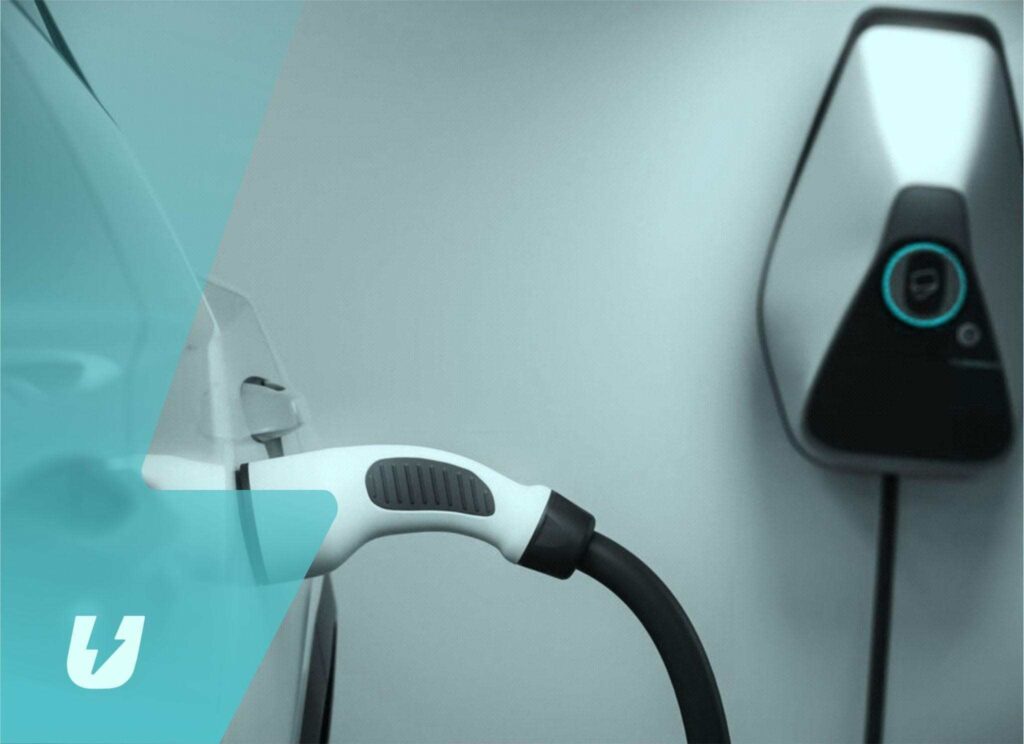
To determine your EV’s charging rate, type its model, make, type and year, then add “maximum charge type” into the search engine.
How to Calculate Your Charging Station’s Amps
To calculate the number of amps your charging station has, take the average miles you’re driving per day, the frequency of your charging sessions at home, and your car’s charging rate.
For instance, should you charge for eight hours at a 16 amp charging station, you’d get 95 miles of range per charge. If you’re generally driving 30 miles per day, you’d have to charge your vehicle overnight at least three times per week.
If you are driving long distances, a higher amp charging station could be best for you so you’d have fewer charging sessions per week.
Be sure to think about any future changes you might have, such as transitioning to a plug-in hybrid, to an electric EV, owning multiple EVs, or any potential changes in your driving habits.
- Can I Plug My Electric Car Into a Regular Plug Socket?
You can charge your EV with a 3-pin plug, and the majority of new cars will have a cable for just this purpose. Before you take this easy option, though, it is best to consider other more efficient charging options and preserve it only as a backup plan.
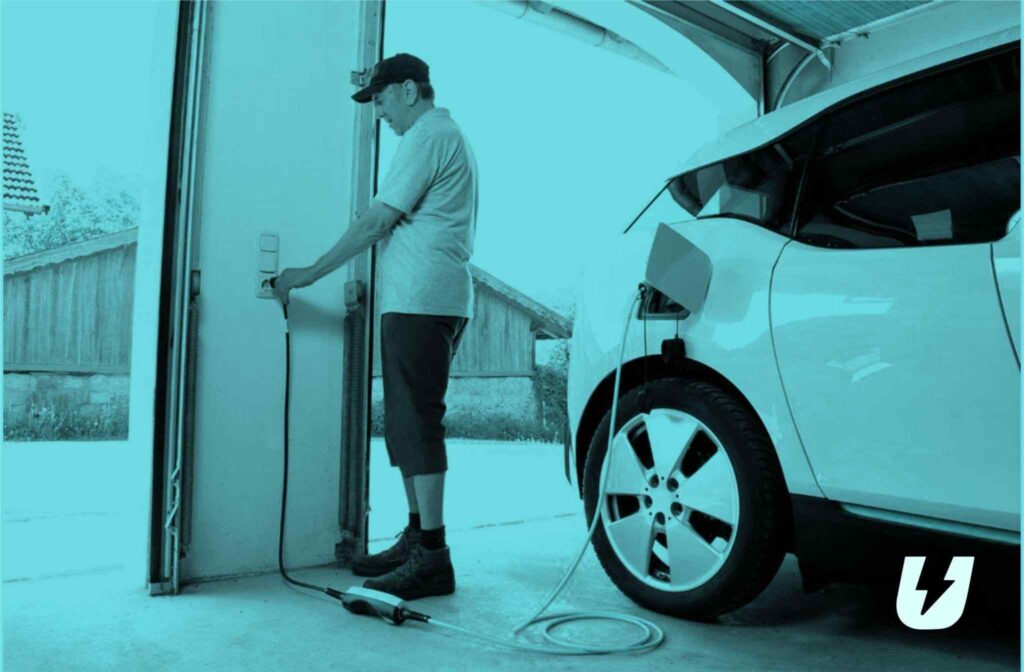
This charging option is slow, providing only 2.3kW, and strains your home electric circuit since it supplies a maximum of 3kW for a long time.
For instance, for a vehicle with a 40kWh battery like the Nissan Leaf, you will need more than 17 hours to reach full charge. To go from empty to full with a 64kWh Kia E-Nitro, you would need almost 28 hours of charging time.
- What are smart chargers?
The UK government wants to introduce measures to ensure that all EV charging points installed and sold within the country contain smart charging features, and only smart chargers are eligible for government grants in installing electric vehicle charging station at home.
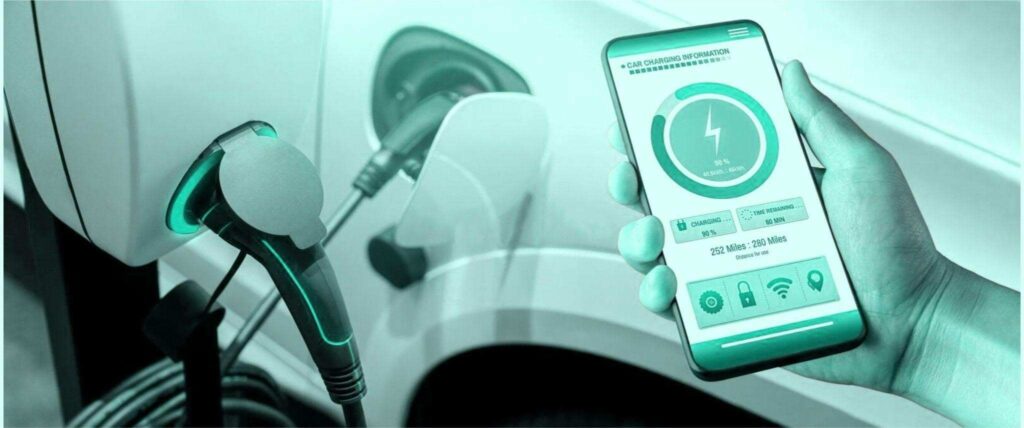
These chargers enable you to charge at any time during the day while demanding low energy, which means less strain on your electricity grid. You can set your charger to operate overnight with very little increase in your electricity bills.
Smart chargers are also fast, safe, and easy to use so you benefit a lot from your investment.
- Is Vehicle-to-Grid Charging a viable option?
Vehicle-to-Grid (V2G) charging occurs when electric cars act as power banks, supplying energy to the grid during the busiest hours. While smart charging is a way to manage your demand on the grid, V2G gets energy from the car batteries to supply your home and electricity network.

This concept is just like having a decentralized power station throughout the United Kingdom. This reliability of the car’s renewable energy has a charge from the supplier providing it, while the car remains fully charged as needed.
V2G technology continues to improve and should be more accessible soon.
Final Tip
We hope this article has been a great resource for you. Here are some additional resources when considering which EV and charging station is right for you: Best EV Home Charger UK

